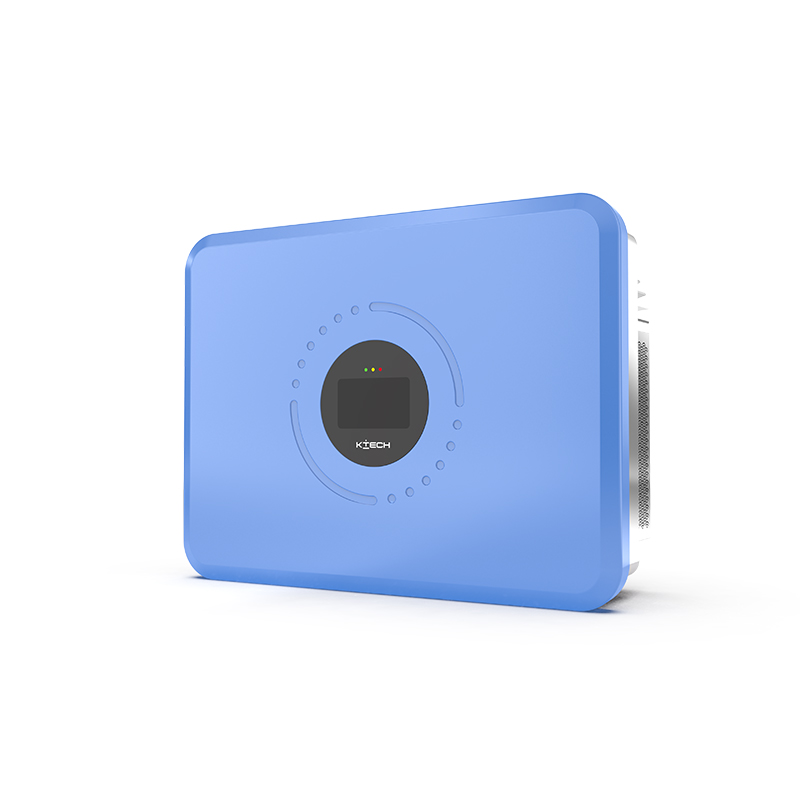What is an Inverter and Why is It Important?
2025-07-08
In today’s modern world, where energy efficiency and reliable power supply are essential, the inverter has become a key component in homes, businesses, and industries. Whether it’s for renewable energy systems, backup power, or everyday appliances, inverters play a crucial role in converting and managing electricity.
What is an Inverter?
An inverteris an electronic device that converts Direct Current (DC)into Alternating Current (AC). Since most household appliances, industrial equipment, and the power grid operate on AC, inverters are essential when using power sources like solar panels, batteries, or fuel cells, which produce DC.
Inverters ensure that electricity is supplied at the correct voltage, frequency, and waveform for safe and efficient operation of electronic devices.

What Are the Types of Inverters?
There are several types of inverters based on their design and application:
1. Pure Sine Wave Inverter:
Produces a smooth, wave-like current similar to utility power.
Ideal for sensitive electronic devices like laptops, medical equipment, and air conditioners.
2. Modified Sine Wave Inverter:
Produces a rougher current but works well for simple appliances such as lights and fans.
More affordable but less efficient.
3. Square Wave Inverter:
The simplest and cheapest type, but rarely used today due to its poor compatibility with most devices.
In terms of usage, inverters can also be classified as:
Off-Grid Inverters:Used in standalone solar or battery systems.
Grid-Tied Inverters:Used in solar systems connected to the utility grid.
Hybrid Inverters:Combine both off-grid and grid-tied functionalities.
What Are the Applications of Inverters?
Inverters are widely used in various sectors:
Solar Power Systems:Convert solar energy into usable AC electricity for homes and businesses.
Uninterruptible Power Supply (UPS):Provide backup power during outages.
Electric Vehicles (EVs):Control electric motor functions and convert battery power.
Industrial Equipment:Manage motors, pumps, and machinery.
Household Appliances:Inverter technology is used in air conditioners, refrigerators, and washing machines for energy efficiency.
What Are the Benefits of Using Inverters?
Using an inverter offers several advantages:
Energy Efficiency:Modern inverter technology reduces energy consumption and electricity costs.
Reliable Power:Ensures uninterrupted power supply during outages.
Environmentally Friendly:Supports the use of renewable energy sources.
Device Protection:Stable power prevents damage to sensitive electronics.
Cost Savings:Longer lifespan of appliances and lower maintenance needs.
What Should You Consider When Choosing an Inverter?
When selecting an inverter, consider:
Power Rating:Ensure it meets the total wattage of the appliances you plan to use.
Battery Compatibility:Choose an inverter that works with your battery type and voltage.
Waveform:Pure sine wave is preferred for sensitive electronics.
Efficiency and Safety Features:Look for features like overload protection, surge control, and smart monitoring.
Conclusion: Why is an Inverter Essential?
An inverter is more than just a power conversion device—it is the heart of any efficient and reliable electrical system. Whether you’re aiming for energy independence with solar panels, ensuring backup power during blackouts, or using energy-efficient appliances, an inverter is the key to smooth and uninterrupted operation.
Investing in the right inverter can enhance comfort, save money, and contribute to a greener planet.


